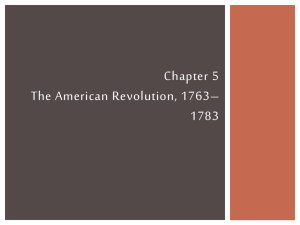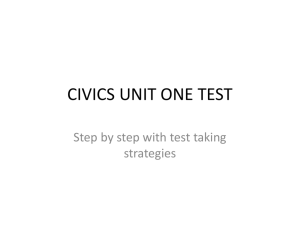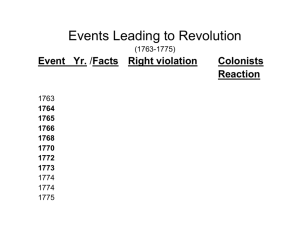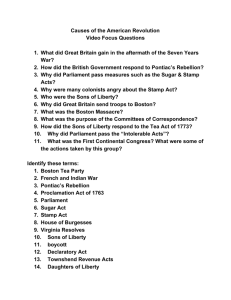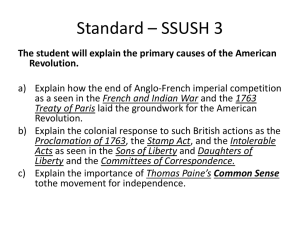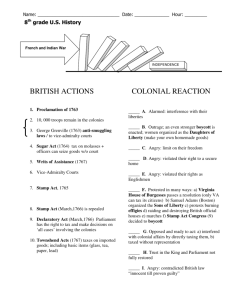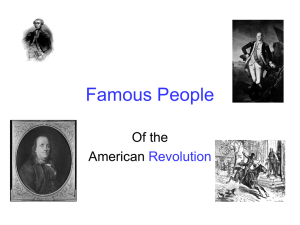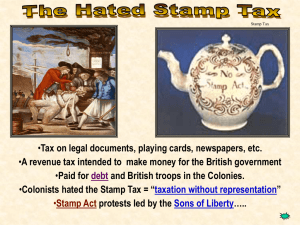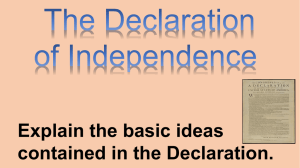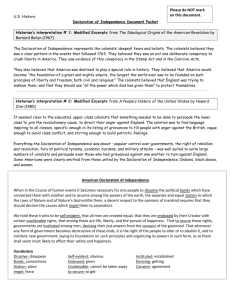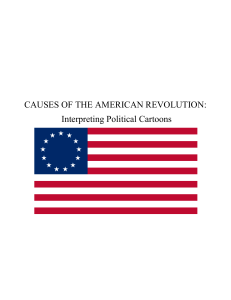Section IV: Liberty
advertisement
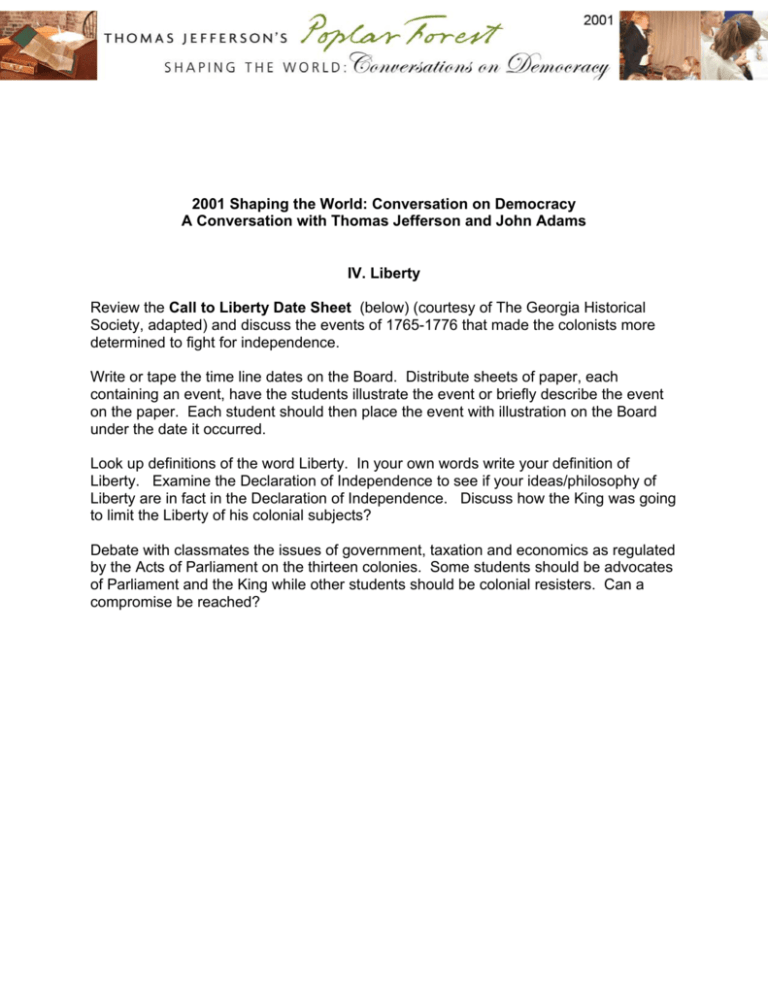
2001 Shaping the World: Conversation on Democracy A Conversation with Thomas Jefferson and John Adams IV. Liberty Review the Call to Liberty Date Sheet (below) (courtesy of The Georgia Historical Society, adapted) and discuss the events of 1765-1776 that made the colonists more determined to fight for independence. Write or tape the time line dates on the Board. Distribute sheets of paper, each containing an event, have the students illustrate the event or briefly describe the event on the paper. Each student should then place the event with illustration on the Board under the date it occurred. Look up definitions of the word Liberty. In your own words write your definition of Liberty. Examine the Declaration of Independence to see if your ideas/philosophy of Liberty are in fact in the Declaration of Independence. Discuss how the King was going to limit the Liberty of his colonial subjects? Debate with classmates the issues of government, taxation and economics as regulated by the Acts of Parliament on the thirteen colonies. Some students should be advocates of Parliament and the King while other students should be colonial resisters. Can a compromise be reached? THE CALL TO LIBERTY 1763 Britain wins the French and Indian War, and have a large debt from the war. 1765 Britain passes the Stamp Act. This requires a stamp on every legal document. A tax must be paid to receive the stamp. Colonists wrote petitions against the Stamp Act, burned tax collectors in effigy, and boycotted certain businesses. The Sons of Liberty were groups of men who lead these nonviolent protest methods. Stamp Act repealed. Declaratory Act stated that Parliament had the right to make laws for the colonies. Quartering Act of 1765 required the colonies to supply the British troops with certain goods. 1767 Revenue Act of 1767 also known as the Townshend Act was passed. Duties were levied on certain goods such as glass, lead, printer’s colors, paper and tea. 1767 - 1770 Nonimportation associations form in the colonies. These were groups of merchants that refused to purchase British goods. The Daughters of Liberty meet together to spin and weave cloth so they do not have to purchase cloth from the British. 1770 The Boston Massacre occurs on March 5th. The towns people attacked the British soldiers. The soldiers fire on the unarmed crowd and kill five people. 1773 Dec. 16, patriots dressed as Indians board ships in the Boston Harbor and dump tea into the harbor. This became known as the Boston Tea Party. 2001 Shaping the World: Conversation on Democracy - Thomas Jefferson Confers With John Adams © Thomas Jefferson’s Poplar Forest 1774 The British pass the Intolerable Acts to punish the colonists for the Boston Tea Party. The Intolerable Acts included: Boston Port Act which closed the Boston Port. Massachusetts Government Act which took away the Massachusetts’ charter. Quartering Act of 1774 which allowed the British to house troops in private homes. Justice Act and Quebec Act In October the first Continental Congress met in Philadelphia and passed the Suffolk Resolves, which encouraged colonists to disobey the Intolerable Acts. 1775 The Battles of Lexington and Concord The Battle of Bunker Hill 1776 In May the second Continental Congress met in Philadelphia and called for a draft of a declaration of independence. July 4 -- The Declaration of Independence is signed by John Hancock at Carpenter Hall, Philadelphia. August 2 -- The Declaration of Independence is signed by the other founders. 2001 Shaping the World: Conversation on Democracy - Thomas Jefferson Confers With John Adams © Thomas Jefferson’s Poplar Forest
